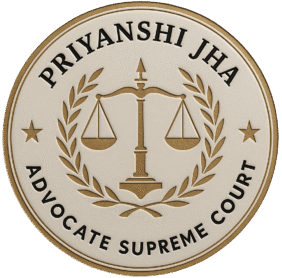
With the explosion of digital platforms, mobile apps, and e-commerce, data is now more valuable than ever. But with this power comes legal responsibility. In India, the Information Technology Act, 2000, and the emerging Digital Personal Data Protection Act (DPDPA), 2023 govern how businesses must handle user data—and non-compliance is no longer optional.
As someone who advises clients on regulatory risk, contracts, and technology law, I’ve seen businesses—especially startups and online platforms—face unexpected trouble over what seemed like “just another privacy clause.”
Let’s break it down.
⚖️ What Is the IT Act & Why It Matters
The Information Technology Act, 2000, is India’s foundational law for cyber crimes and digital regulation. It governs:
- Digital contracts and e-signatures
- Cybersecurity and hacking offences
- Intermediary liabilities
- Data protection (Section 43A)
- Punishments for unauthorized access, misuse, or damage to digital assets
With the DPDPA, 2023, India is now transitioning toward a user-consent based data protection regime, aligning with global standards like GDPR.
📋 Key Data Privacy Obligations for Businesses
Whether you run a SaaS tool, ecommerce store, or fintech app, here’s what you’re expected to do:
- Collect user data only with clear consent
- State your purpose for data collection in a Privacy Policy
- Secure the data with reasonable encryption and access controls
- Limit storage of personal information beyond what’s required
- Disclose breaches promptly, and notify users if impacted
- Appoint a Data Protection Officer (for large-scale data handlers)
✅ Data Privacy Compliance Checklist (India)
Use this self-check tool to see where your business stands:
🔒 Data Privacy & IT Act Checklist
- Have we published a Privacy Policy and Terms of Use on our website/app?
- Are users informed about what personal data we collect and why?
- Is our consent mechanism opt-in, specific, and granular?
- Have we limited access to customer data internally?
- Do we store user data only as long as necessary?
- Do we encrypt or hash stored passwords and sensitive fields?
- Have we implemented a data breach response plan?
- Is someone responsible for compliance and breach notification?
- Do we avoid sharing user data with third parties without consent?
- Are we prepared for user requests to access, modify, or delete their data?
👩⚖️ Advocate’s Insight
“In the digital age, user trust is built on compliance. Privacy policies aren’t just legal boilerplate—they’re commitments to your users, enforceable by law. With DPDPA, the game is changing, and businesses must keep pace.”
— Advocate Priyanshi Jha
❓ FAQs on Data Privacy Compliance
🔹 Q1: Is a Privacy Policy legally required in India?
A: Yes, under the IT Act and SPDI Rules, any website or app collecting personal information must publish a Privacy Policy.
🔹 Q2: What are the penalties for data breaches?
A: Under Section 43A, compensation can be awarded to affected users. With DPDPA, penalties may include fines up to ₹250 crore.
🔹 Q3: Do small businesses need to comply?
A: Yes. Compliance scales with the nature of data, not company size. If you handle financial, health, or identity data—you must comply.
🔹 Q4: Is WhatsApp or email consent valid?
A: Only if it’s clear, informed, and verifiable. Generic “I agree” statements won’t stand up to legal scrutiny.
📞 Need Help Drafting Your Privacy Policy or Legal Disclaimers?
I provide legally sound, platform-specific documents for websites, apps, and startups—ensuring you stay compliant and protected.

